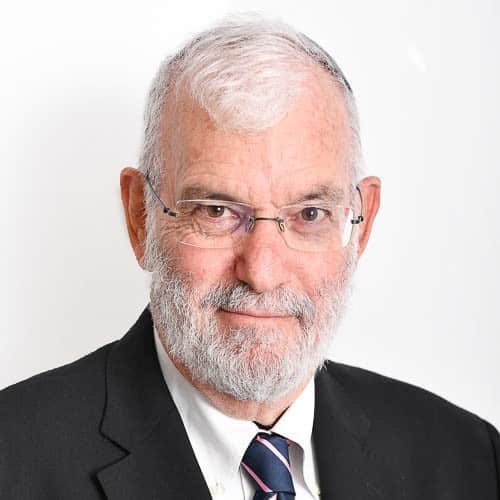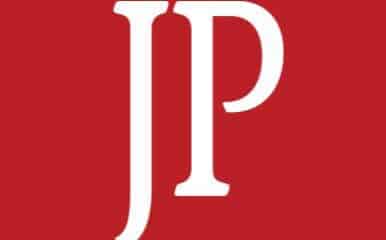“The Iranians know that Israel has red lines in Syria and on the Golan Heights, and we are very determined.”
The Jerusalem Post, 11.01.2019
![]()
By Greer Fay Cashman
The connection between The Jerusalem Post and the Government Press Office goes back to long before the establishment of the state. Gershon Agron, the founding editor of The Palestine Post – which later became The Jerusalem Post – was in 1924 appointed head of public relations in the political department of the Jewish Agency. His unit was known as the Press Office. It published material in Hebrew, English, German, French and Spanish.
In 1934, the Jewish Agency established a news division that was headed by Joseph Gravitzky. The news division later became independent, under the direction of Yeshayahu Klinov, and supplied information to newspapers in the country, as well as to Jewish newspapers worldwide. The news operation as a whole was managed by Moshe Sharett, who subsequently became the first foreign minister of Israel and its second prime minister.
In 1951, the news division became the Government Press Office, with London-born Moshe Perlman as its first director. Rumor has it that Sharett was so involved with news emanating from the nascent Jewish state that he would check the pages of The Palestine Post before it went to print to ensure there was nothing that would be harmful to the state. The GPO has developed in several directions under a series of directors. For many years, it was headquartered in Beit Agron in the capital’s Hillel Street.
In 2011, it moved to much larger and more sophisticated premises in the Malha Technology Park, following a decision by the Jerusalem Municipality to transform Beit Agron into 200-bed dormitories for students of the Bezalel Academy with the aim of reinvigorating the city’s downtown area with its ongoing presence of a younger population.
Current GPO director Nitzan Chen, who has been in the job since 2012 and who has wide experience as a journalist and a manager, has developed the GPO to make it more inclusive in terms of social interaction and access to information.
His latest project was the launch this week of the GPO Café, an English-language interactive lecture club. The club is conducted from the GPO’s auditorium in Malha, but broadcast live on the GPO’s Facebook page and subsequently podcast to enable people around the globe to be au fait in real time with what is happening in Israel.
THE FIRST guest was Maj. Gen. (res.) Yaakov Amidror, a former national security adviser and head of the Research Department of Military Intelligence, and current Anne and Greg Rosshandler Senior Fellow at the Jerusalem Institute for Strategy and Security (JISS), and Distinguished Fellow at the JINSA Gemunder Center for Defense and Strategy.
Amidror was interviewed in a one-on-one discussion with Jerusalem Post military reporter Anna Ahronheim, who hails from Montreal and has a master’s degree in counter-terrorism from IDC Herzliya.
Unlike many other interviewers, Ahronheim does not sit with a list of questions in front of her, nor does she send advance questions to interviewees. She prefers spontaneity, and goes with the flow of the conversation, which can lead in many directions, and which in the final analysis, is more interesting.
Ahronheim covered a vast field with Amidror, who kept bringing their exchange back to Iran, saying Israel’s main effort today is to contain the Iranians and to foil the Iranian attempt to build an independent war machine that reaches all the way to the Mediterranean.
Asked about possible Iranian infiltration into the Golan Heights, Amidror said that as far as is known, there is no intention of deploying Iranians to the Golan Heights. “They know there’s a red line and we are very determined.”
Among the questions posed on Facebook was whether there is a chance that the Iranians can interfere in Israel’s elections. Amidror doubted that anyone could influence the outcome of the Israeli elections, because to do so would require an in-depth understanding of Israeli culture and politics – both of which are very complex.
Cautious with his words Amidror, however, implied that there is far greater cooperation with Arab countries under the radar than is commonly known.
In reply to a question from the floor, he also noted that there is no leadership in the Sunni Arab states, which is why 85% of Sunnis are unable to contain 15% of Shi’ites.
He did not see the American withdrawal from Syria as having major implications for Israel because, militarily, Israel has always fought her own battles. “We did it ourselves. We did not have partners in the past and we will not in the future.”
While peace in the region continues to remain a utopian dream, Amidror commented that if good cooperation is ever achieved between the Arab states and Israel, something similar to the European Union could be established in the Middle East and solutions could be found for a lot of common problems.
Amidror said he was proud to be the first guest interviewee at the GPO Café. It was a good beginning, he said, adding he was certain it would get better as it went along.
Chen said that for the foreseeable future, GPO Café meetings would be conducted on a monthly basis. But if they become exceedingly popular, he will consider having them on a weekly basis.
The Jerusalem Post, 11.01.2019







 - בניית אתרים
- בניית אתרים